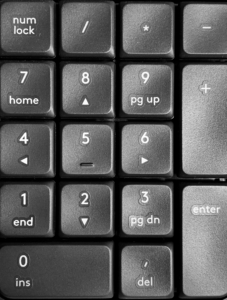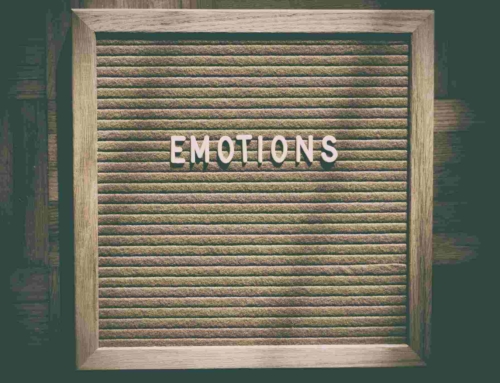The Enneagram personality test is proving to be a helpful tool for counseling relationships, spiritual, and personal growth. While most may be familiar with the nine Enneagram personality types, there is another aspect to the Enneagram people do not always know. In this article, we are going to look at the Enneagram triads and explore what they are and how they can provide valuable insight into your life.
What are the Enneagram Triads?
The Enneagram Triads are also referred to as centers. Each of the nine personality types falls into one of these triads and each triad encompasses three different types.
Triads help us understand more about where our thinking center is located. These triads are the gut (sometimes called the body) center, the heart center, and the head center.
The Gut (or Body) Triad
Those who fall within this triad are Enneagram numbers 8, 9, and 1. People within this center tend to rely most heavily upon, and feel most influenced by, their gut reactions. These individuals are often highly intuitive and have instincts that others trust.

These types struggle to control anger, repression, and aggression. This triad is sometimes referred to as the anger triad. Accessing anger can be more difficult for those in this triad.
Type nine falls at the center of this triad as the type most out of touch with their anger. Nine may even deny ever having feelings of anger. Nines often need to work to access their anger and deal with it in healthy ways. Eights and Ones also struggle with anger.
Eights can usually access their anger and acknowledge it but lack a healthy way to deal with it. They may have angry outbursts or be viewed as aggressive, whereas Ones may not readily identify their anger. Ones may experience a desire to change and control their situations because of the anger they do not recognize.
These types tend to have healthy relational boundaries. They can assert themselves gently to have their needs met. They trust their intuition and instincts and know how to respond appropriately. Anger processed in a healthy way and can control their impulses.
The Heart Triad
 Those who fall within this triad are Enneagram numbers 2, 3, and 4. People within this center tend to rely most heavily upon, and feel most influenced by, their emotions, and the emotions of others. These individuals are often in helping or nurturing professions.
Those who fall within this triad are Enneagram numbers 2, 3, and 4. People within this center tend to rely most heavily upon, and feel most influenced by, their emotions, and the emotions of others. These individuals are often in helping or nurturing professions.
These types tend to struggle with unbalanced feelings or emotions and feelings of shame. This center is also known as the feelings center. Properly identifying and processing emotions can be a struggle for those in this triad.
Type Three is at the center of this triad as the type who has the most difficult time accessing their emotions and processing them. Threes are concerned with the image they are presenting and may push their feelings aside to preserve their image. A Two may go to the other extreme of overexpressing their feelings.
Negative feelings are often repressed. A Two may want to avoid drawing attention from a negative feeling. Fours struggle with not expressing feelings enough and often want to have others pulled into their feelings. They may be unsure of how to express feelings while staying true to what they believe their identity to be.
These folks can be great helpers, highly creative, and cultivate deep relationships. They learn to manage and express their feelings in ways that can be informative and supportive of others.
The Head Triad
Those who fall within this triad are Enneagram numbers 5, 6, and 7. People within this center tend to rely most heavily on their minds. These individuals are often deep thinkers, analyzers, and take in great amounts of information.
 Anxiety, insecurity, and fear tend to be a struggle for these types. This is also known as the fear center. They will often try to research or overthink their way out of a situation and cause themselves additional anxiety.
Anxiety, insecurity, and fear tend to be a struggle for these types. This is also known as the fear center. They will often try to research or overthink their way out of a situation and cause themselves additional anxiety.
Type Six is at the center of this triad. Sixes struggle the most to access their thinking side and trust their inner wisdom. They doubt themselves and need frequent reassuring of their decisions and needs. Fives easily think too much and never doing anything about what they have thought about.
They easily get into toxic thought mode and are unsure of how to get out. Whereas a Seven may do too much to avoid thinking. They will try to avoid thoughts that they feel are negative, anxiety-provoking, or difficult by staying busy. Sevens may become impulsive because of avoiding their thoughts.
These types can be highly creative and thoughtful individuals. When they learn to process and express their thoughts, they can bring benefits to the world with their ideas and insights.
How the Enneagram Triads May Help in Counseling
Those who identify as part of the Gut Triad may use counseling to help identify, access, and manage anger. Repression often occurs among these individuals. This repression can manifest in a variety of ways throughout the body and mind. In some, it may become a serious issue and have a major impact on their lives. Counseling can help with this.
Your counselor can help you recognize the physical signs of anger or repression within your body. Relaxation techniques, anger management skills, and personal reflection can be helpful for Gut Triads types. A counselor can also be a haven with which to process feelings of anger and to learn to vent and discuss anger in a healthy way.
 Heart Triads can benefit from counseling to help with all manner of things related to feelings. These types struggle to identify feelings and know what to do with them. For some people, it can be detrimental to their relationships, health, and emotional well-being.
Heart Triads can benefit from counseling to help with all manner of things related to feelings. These types struggle to identify feelings and know what to do with them. For some people, it can be detrimental to their relationships, health, and emotional well-being.
A counselor can help Heart Triad types manage their feelings. Discussing feelings and exploring them in a safe place is quite helpful for these folks. Many people in this triad tend to be in helping or nurturing professions. Counseling can help them thrive in their work as well as process the emotions and experiences that can come from these positions.
Those in the Head Triad may benefit from counseling to process their thoughts and anxieties. Fear and anxiety can become crippling for these individuals at times and they often do not have skills to cope with them. A counselor can help Head Triad types to know why they think certain ways, manage their thoughts, and be a sounding board.
It can be difficult for these folks to put words to their thoughts. Creative outlets such as art or meditation may benefit them to access and organize their thoughts. A counselor can help these types learn to overcome their anxieties and live in peace.
Which triad do you most identify with? For folks who have struggled to figure out which Enneagram personality type they are it can be helpful to start with these triads. If you identify which triad you fit into, you can begin to narrow down which number you are. Of course, we are more than happy to help with this process. We believe it to be a tool that can provide insight, support, and strength.
“Keypad”, Courtesy of Aykut Eke, Unsplash.com, CC0 License; “Heart”, Courtesy of Debby Hudson, Unsplash.com, CC0 License; “Mannequin”, Courtesy of Kira auf der Heide, Unsplash.com, CC0 License; “The Cube”, Courtesy of Jean-Louis Paulin, Unsplash.com, CC0 License









